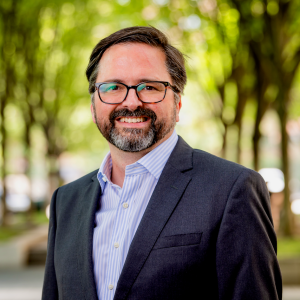
Rodney Gibbs is a journalism innovator dedicated to strengthening local news. As Head of Product and Audience at The National Trust for Local News, he helps 65 newsrooms in rural and suburban communities enhance their digital reach and develop new revenue.
Rodney previously served as Senior Director of Strategy and Innovation at The Atlanta Journal-Constitution, where he helped modernize the legacy publication by developing live events and leading storytelling experimentation.
He was the first Chief Product Officer at The Texas Tribune, where he played a key role in elevating the organization from a fledgling start-up to an industry leader. During his nine-year tenure, he launched Revenue Lab, a training center that helped news organizations across the country develop new revenue streams and expand their audiences.
Rodney is a graduate of CUNY’s Executive Program in News Innovation and Leadership and a member of its AI Journalism Lab. He serves on the boards of the Online News Association and The Current, a digital newsroom focused on Georgia’s coastal communities. He has also served on the boards of several nonprofits, including Austin’s NPR and PBS affiliates, The Austin Film Society, Big Brothers Big Sisters of Central Texas, and The Texas Motion Picture Alliance.
